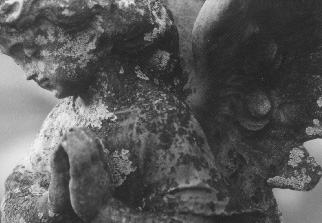Efficacy of Prayer
On Friday, The New York Times ran an article on a new study on prayer. The article, titled Long-Awaited Medical Study Questions the Power of Prayer, related the results of a study of prayer for 1,802 heart bypass patients which is being published in The American Heart Journal. Dr. Charles Bethea, a co-author of the study, succinctly stated the results as, “Intercessory prayer under our restricted format had a neutral effect.”
The bottom line is that when they asked Christians who did not know the Christians who did not no the persons for whom they were praying to ask God specifically for “a successful surgery with a quick, healthy recovery and no complications.” Those praying were given the first name and an initial only for the last name.
 The 1800-patients were divided into three groups:
The 1800-patients were divided into three groups:
1) Those who received prayers whithout knowing it, 2) Those who were being prayed for knowingly and
3) Those who were not receiving prayer. Among two groups of patients, one having people praying for them but not knowing, and the other receiving no prayers, there was no difference in their health and recoveries. But, the group that was being prayed for and knew about it had more complications after surgery than the other two groups.
Hospital chaplain Dean Marek, another co-author of the report, noted that the study said nothing about the power of personal prayer or about prayers for family members and friends. The study only dealt with prayers by a group of Christians for people they knew only through a written prayer request.
The New York Times article quoted Bob Barth who heads up a prayer ministry which was one of the three groups praying for patients in the study. Barth said, "A person of faith would say that this study is interesting, but we've been praying a long time and we've seen prayer work, we know it works, and the research on prayer and spirituality is just getting started."
While many news outlets are reporting prayer as inffective, I think that Barth is on to something. While there is no need to discredit this study, neither should we drop intercessory prayer which I and many others have experienced as highly effective. At most, the study may call us to question how it is that we pray for those we don't know. Can we possibly interceed for them in the same way that we pray for someone we know and love dearly? Obviously not.
Were I to have to go in for heart bypass, I would be more or less indifferent to whether a group of designated pray-ers were given my name and first initial, but I know that I would value highly the prayers of those who know and love me. And there are some real prayer warriors I would want to have the word that the surgery was coming up. Perhaps intercessory prayer is a gift, but that even without the gift those who love you dearly can also pray deeply for you.
What do you think?
peace,
Frank+
The Rev. Frank Logue, Pastor + King of Peace Episcopal Church
The bottom line is that when they asked Christians who did not know the Christians who did not no the persons for whom they were praying to ask God specifically for “a successful surgery with a quick, healthy recovery and no complications.” Those praying were given the first name and an initial only for the last name.
 The 1800-patients were divided into three groups:
The 1800-patients were divided into three groups: 1) Those who received prayers whithout knowing it, 2) Those who were being prayed for knowingly and
3) Those who were not receiving prayer. Among two groups of patients, one having people praying for them but not knowing, and the other receiving no prayers, there was no difference in their health and recoveries. But, the group that was being prayed for and knew about it had more complications after surgery than the other two groups.
Hospital chaplain Dean Marek, another co-author of the report, noted that the study said nothing about the power of personal prayer or about prayers for family members and friends. The study only dealt with prayers by a group of Christians for people they knew only through a written prayer request.
The New York Times article quoted Bob Barth who heads up a prayer ministry which was one of the three groups praying for patients in the study. Barth said, "A person of faith would say that this study is interesting, but we've been praying a long time and we've seen prayer work, we know it works, and the research on prayer and spirituality is just getting started."
While many news outlets are reporting prayer as inffective, I think that Barth is on to something. While there is no need to discredit this study, neither should we drop intercessory prayer which I and many others have experienced as highly effective. At most, the study may call us to question how it is that we pray for those we don't know. Can we possibly interceed for them in the same way that we pray for someone we know and love dearly? Obviously not.
Were I to have to go in for heart bypass, I would be more or less indifferent to whether a group of designated pray-ers were given my name and first initial, but I know that I would value highly the prayers of those who know and love me. And there are some real prayer warriors I would want to have the word that the surgery was coming up. Perhaps intercessory prayer is a gift, but that even without the gift those who love you dearly can also pray deeply for you.
What do you think?
peace,
Frank+
The Rev. Frank Logue, Pastor + King of Peace Episcopal Church







0 Comments:
Post a Comment
<< Home